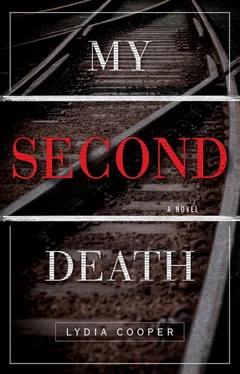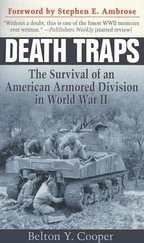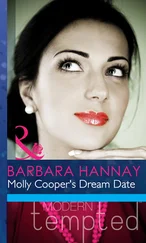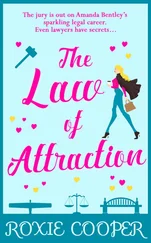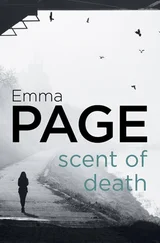And the next camper discovered the house was already habited, if not by the ghost of the violently deceased, then by the ghost of future cops, detectives, and forensics teams.
A drugged-up homeless person with a Dora the Explorer backpack has more sense than I do. I don’t want to touch the sheet, release any more of the rot into the air, and there is nothing left for me to find as far as I can tell. So I turn to leave. But when my hand closes over the door handle, I see something on the back of the door. I hit the screen of my cell phone so that the light brightens.
Someone has written on the back of the door, scrawled in blue ink across the once-white paint.
O, that this too too solid flesh would melt
“Sullied,” I say.
My voice startles me.
For a second, breathless, I imagine the sunken eyeholes of the corpse turning in my direction. The whole world waiting for my next words.
I cough again, swallow, and duck my chin against my neck. I put my cell phone in my pocket and leave, pulling the door shut behind me. But I can still see the words in my mind, that sharp downward slanted print. O, that this too too — it’s from Hamlet , of course, but most copies of the play use the word “sullied.” There is some disagreement about which word Shakespeare intended, which word is a copier’s error. I have always preferred “sullied.”
But it occurs to me as I go carefully down the dark stairs that however sullied the corpse, it is inarguably less solid and will slowly disparate into parts, the liquid leaching out, gases escaping, the drying remains shrinking in on themselves until they turn to dust.
All flesh that was solid once will melt.
When I get outside the sun seems too bright. I stand blinking and put my hand over my face. Does my skin smell like rot? I can’t tell. I can’t smell anything.
It’s too hard, the sunlight. My skin feels exposed. I’m a fool for coming back. I don’t know what I thought I would find.
I don’t know how — God, how ? — my mystery murderer knew I would come back. Or were those words there before, and I just didn’t see them?
My memory is unreliable and I’m so used to relying on my mind, the cold mechanisms of it flawless as steel and hard as adamantine. It’s all soft in my head now. Disintegrating.
I cross the street to the Chevelle and pull my keys out. My breath suddenly comes so fast that my vision clouds over and my muscles soften, as if they’ve turned to tapioca. I sag against the hood and close my eyes, the black painted metal under me sturdy and sunwarmed.
When I finally open my eyes I look out at a world not terribly changed. The house across from the secret mausoleum has a red and blue rental sign hammered into the front lawn. Dirt is ground into the cracked sidewalk so that it looks like ribbons of black. The houses on either side of the street are running to decay, blank faced, obtuse. Blind to the defiled relict in their midst. Or does each slant-poled edifice hide its own cankerous secrets?
I turn over my left hand, look at the cell phone. I know now that my own spore will not be so noticeable, not if the house is or was being used as an ad hoc homeless shelter. And there are the words on the door. People study handwriting, specialists do. City detectives could analyze the strokes and determine the author. No one would know it was me who made the call. No, they will. They will trace the call and I have no reason at all to be here. But still, there is evidence there. I should call. My thumb presses the 9. But why me? How am I complicit in this? It was done for me, with me in mind, at the very least. I press the 1. I don’t want to know the answers. I want to have never found that pink message slip. I want to go back to the garage and wake up innocent. I don’t care if I was bored. I was good, or at least, I wasn’t standing on the cusp of damnation with nothing but air underneath.
“Mickey?”
I freeze.
And look up, slowly.
He is wearing a hooded sweatshirt with the hood pulled over his head and he is no longer haloed by the kitchen light, but I recognize him anyway. That sparrow-frail build, the diffident stance, the pale skin.
Aidan is on the sidewalk, hands in his jeans pockets, looking at me from under his hood.
“What are you doing here?”
I turn my phone over, slide it into my jacket pocket. I straighten up.
He doesn’t back up. Doesn’t turn his head to look across the street in any startled gestures of guilt. I think that all of those cop shows are wrong. No one starts confessing with the reckless abandon born of stage directions.
I wait for him to glance inadvertently to his left, toward the house across the street. He doesn’t move, just keeps staring at me. It’s like a western, the showdown scene. Only it’s really cold and my nose is running. I wipe my nose on my wrist.
At my gesture, he takes a few steps toward me, stops before he reaches the car. He puts his head to the side like a sparrow spotting a worm. “Is this about what I said? The murder?”
I don’t say anything. He has no tells, no subtle tics or movements in the direction of the corpse not a hundred yards away.
“You know I didn’t mean to scare you or anything. I mean, I’m not saying you’re scared, but if you came here because—” He breaks off. Then he says, “How did you know where I live? Did your brother tell you?”
“My brother?” I didn’t intend to say anything but the words are startled out of me. And then, “You live here?”
He scratches his nose with his thumb. “Well, yeah,” he says. “He came by a couple times.”
“You know know him. My brother.” I thought it was just a meeting at a poetry event. I thought Aidan was obsessed with me. But no, I’m being foolish. It would make so much more sense if it’s my brother he’s after, at least from a sexually motivated perspective.
“That doesn’t — nothing makes sense.” I didn’t mean to say that out loud. I push myself off the hood of my car. “Why would I come here about a murder?”
He just looks at me. Shrugs. “Why else are you here? I just figured you were, I don’t know. Interested.”
“Why would I be interested?”
He swallows, inhales. Says in a rush, “You’re telling me a murder doesn’t interest you?”
“Jesus,” I say.
He blinks twice and looks down at the sidewalk. He doesn’t look to his left. Or anywhere else. Then he says, “Okay. I just thought you were here to see me.”
I point my finger at the for rent sign. “I’m house hunting,” I say. “Real estate.”
He smiles a little. Then he stops smiling. “I can’t tell if you’re joking.”
For a second, I am transported — caught up in the hypothetical world in which I am not here playing corpse voyeur and amateur detective, but here for a perfectly prosaic and functional adult reason. A hypothetical world Aidan apparently finds at least partially plausible.
I think about what would happen if it were true, if I told my parents I was leaving the garage. Moving out. Becoming an independent adult.
“Maybe I am,” I say.
“Okay.” He shrugs again. “Well, you can come on up.”
“What?”
He says, “Do you want to see it or not?”
“Do I want to see what?”
He pushes his hood back and rubs his palm over his hair. It’s sweaty, dark strands like question marks glued to his forehead. “If you want to rent it,” he says, “shouldn’t you see it first?’
“You own it?”
“God, no,” he says. “I’m renting it. But my roommate moved out and I can’t afford the whole rent, so—” He waves his hand vaguely at the house. I look over at it, study it for the first time. The house is large, a graying clapboard with faded blue shutters subdivided into apartments. Beside the front door a black mailbox has white stenciled numbers: 412½. It directly faces 411 Allyn Street.
Читать дальше
